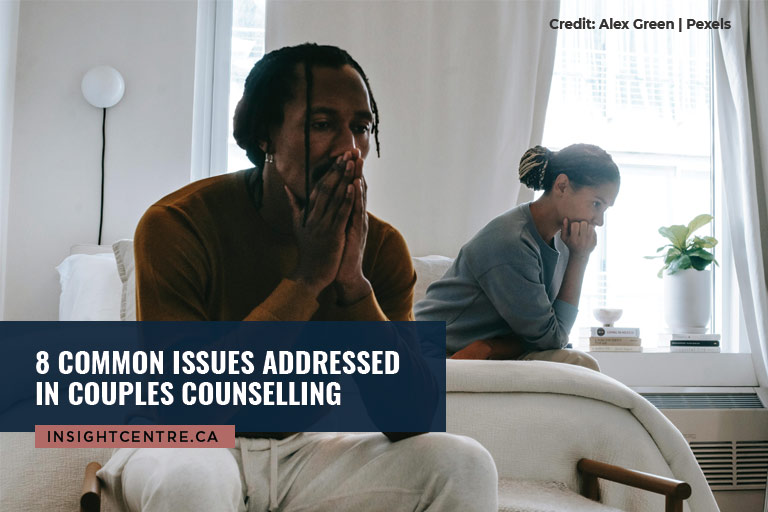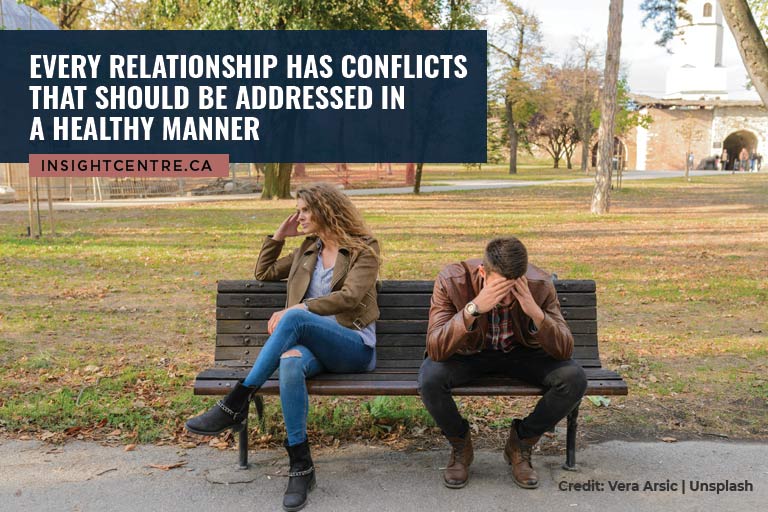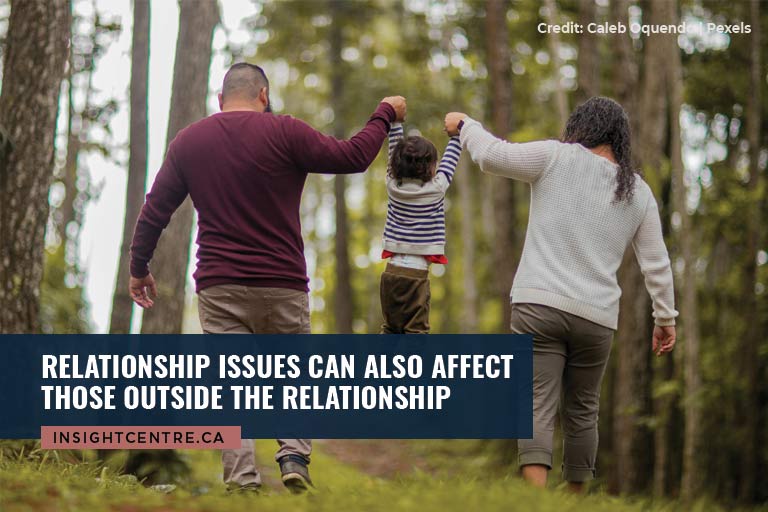
Couples counselling serves as a vital support system for partners facing challenges in their relationships. This form of therapy offers a safe space for individuals to express their feelings, understand each other’s perspectives, and work collaboratively toward resolving conflicts.
With the guidance of a skilled therapist, couples can navigate through their issues, strengthen their bond, and foster a healthier, more fulfilling relationship.

Misunderstandings, assumptions, and the inability to effectively convey thoughts and emotions can lead to resentment and disconnection.
Counsellors employ techniques to improve listening skills, encourage open dialogue, and teach couples to articulate their needs and concerns without blame, fostering a deeper understanding and connection.
Trust, once broken, can be challenging to rebuild. Infidelity, dishonesty, or consistent unreliability can severely damage the foundation of a relationship.
Therapy provides a platform for both partners to express their feelings, understand the root causes of betrayal, and work through the pain. Through guided discussions and trust-building exercises, couples can take steps towards healing and re-establishing trust.
Disagreements are natural in any relationship, but persistent conflicts without resolution can lead to a cycle of frustration and anger. Couples counselling helps identify underlying issues fueling disputes and teaches partners effective conflict resolution strategies.
By understanding each other’s perspectives and finding common ground, couples can resolve disagreements constructively, without causing harm to the relationship.
Physical and emotional intimacy issues are common and can lead to feelings of neglect, rejection, or insecurity.
Counselling can help couples address the factors contributing to intimacy problems, whether they stem from communication barriers, health issues, or emotional disconnection.
Money-related conflicts are a significant source of stress for many couples. Differing values and beliefs about spending, saving, and financial planning can lead to repeated arguments.
In couples counselling, partners learn to communicate openly about their financial goals, understand each other’s perspectives, and develop a unified approach to managing finances.
Life transitions, such as moving, job changes, or the arrival of a child, can strain a relationship.
Counsellors assist couples in adapting to these changes, addressing fears and expectations, and strengthening their partnership to face challenges together. Therapy offers strategies for managing stress and maintaining a supportive, loving relationship through periods of change.
In the pursuit of a harmonious relationship, individuals may lose sight of their own needs and interests. This loss can lead to resentment and a feeling of emptiness.
Couples counselling provides a space for individuals to explore their own identities within the context of the relationship, encouraging personal growth and mutual respect.
Disagreements on parenting styles and decisions can create divisions between partners.
Therapy helps couples find common ground, establish consistent parenting strategies, and support each other in their roles as parents. By presenting a united front, couples can provide a stable, loving environment for their children.

Relationship problems can significantly affect the emotional and physical health of partners. Stress, anxiety, and depression are common outcomes, leading to a decrease in overall well-being. This emotional turmoil can also manifest physically, causing sleep disturbances, changes in appetite, and a weakened immune system, highlighting the importance of addressing issues promptly.
Children are highly perceptive and can sense tension between their parents, which can lead to feelings of insecurity and anxiety. The stress of an unhappy home environment can affect their emotional development, academic performance, and social interactions. Demonstrating healthy communication and conflict resolution in the home teaches children valuable life skills.
Relationship issues between couples can ripple through extended family dynamics, causing strain and choosing sides among relatives. This division can lead to a breakdown in family support systems and create lasting rifts, emphasizing the need for couples to manage their disputes thoughtfully.
Maintain open lines of communication with your partner. Share your feelings, fears, and desires honestly but respectfully. Listening actively to your partner’s concerns without judgment fosters understanding and empathy, laying the groundwork for resolving issues together.
Setting clear boundaries is crucial for mutual respect and understanding. These boundaries can pertain to personal space, financial management, or how to handle disagreements. Clearly defined boundaries help prevent misunderstandings and ensure that both partners feel valued and heard.
Holding onto resentment can poison a relationship. While forgiveness does not mean forgetting or condoning hurtful actions, it involves letting go of lingering anger and bitterness. This step is vital for healing and moving forward from past conflicts.
Invest in your relationship by spending quality time together, engaging in activities that both partners enjoy. This dedicated time helps strengthen your bond, reignite intimacy, and create positive memories, acting as a counterbalance to the stresses of everyday life.
Sometimes, talking to trusted friends or family members can provide a fresh perspective on relationship issues. Support from loved ones can offer comfort and guidance, but it’s important to choose confidantes who respect your relationship’s privacy and are unbiased.
Taking care of your own emotional and physical needs is essential. Engaging in activities that promote your well-being, such as exercise, hobbies, or meditation, can improve your mood and energy levels, positively affecting your relationship.
Couples can also pursue individual counselling separately to work on the issues contributing to the problems in their relationship.
Explore books, online resources, and workshops focused on relationship skills and personal growth. These tools can provide valuable insights and strategies for managing conflicts, improving communication, and enhancing intimacy.
Couples counselling addresses a wide range of issues, from communication breakdowns and trust issues to financial disagreements and intimacy problems.
With the support of a psychotherapist offering couples counselling in Barrie, partners can work through their challenges and strengthen their relationship. If you and your partner are seeking couples counselling near you, consider reaching out to Insight Centre Counselling & Psychotherapy at +1 647-633-1928 for more information. Together, you can overcome obstacles and build a healthier, happier future.
Copyright 2024 Insight Centre | All Rights Reserved | Sitemap | Powered by: Local SEO Search Inc.